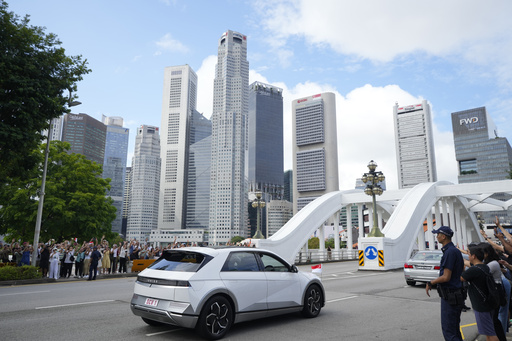Pope Francis commended Singapore’s economic prosperity during his visit, acknowledging the country’s impressive growth as a result of human innovation. However, he also urged Singapore to prioritize caring for vulnerable populations, specifically foreign workers. The Pope arrived from East Timor and was welcomed with the unveiling of a new orchid named after him, the “Dendrobium His Holiness Pope Francis.”
During his official engagements, Pope Francis met with Singaporean President Tharman Shanmugaratnam and Prime Minister Lawrence Wong. He highlighted Singapore’s advancements in public housing, education, and healthcare, while cautioning against a culture that excessively values merit and pragmatism, potentially leaving marginalized individuals behind.
Addressing the issue of migrant workers in Singapore, Pope Francis emphasized the importance of fair wages and dignified working conditions for these essential contributors to the country’s economy. Notably, Singapore does not have a minimum wage policy in place for locals or foreigners.
As the final stop on his tour of Asia, Pope Francis recognized the economic disparities between countries like East Timor and Singapore. While Singapore has become a global financial hub with high living standards, it also faces challenges such as a competitive work environment and high living costs. The country relies heavily on migrant workers, with concerns raised by organizations like Human Rights Watch regarding labor rights abuses and exploitation faced by foreign workers.
President Shanmugaratnam highlighted Singapore’s commitment to environmental sustainability and interfaith harmony during discussions with Pope Francis. He stressed the country’s efforts in balancing development with environmental responsibility, including plans to transition to a low-carbon economy through initiatives like solar energy adoption and carbon taxes.
Pope Francis visited Singapore to engage with the local Catholic community, which constitutes about 3.5% of the population. He also praised Singapore’s tradition of interfaith coexistence, with Buddhists, Christians, Muslims, and individuals with no religious affiliation comprising significant portions of the population. The Pope concluded his visit with a Mass at the national stadium and an interfaith youth event before heading back to Rome.
